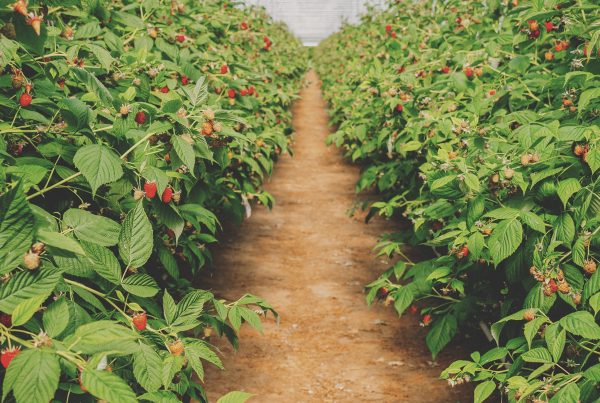Dealing with mental health issues is difficult for everyone, at the best of times. There’s still a stigma around it, and it’s often treated as ‘imaginary’, as if having a dysfunctional brain is any different than having a dysfunctional kidney. Yet ignoring your mental health works just about as well as ignoring your kidney’s health, also with negative long-term consequences.
Some work environments, like farming, have a lower tolerance for mental health issues unfortunately. We have a stereotype of farmers being the silent, stoic types that don’t have to deal with the ‘superficial’ issues that plague folk that live a life less rural. As Canada is made up of a diverse fabric of farmers with origins from many countries, with diverse cultural backgrounds and languages, we spoke to several farming partners about their experiences with mental health. In this article, we’ll mostly let their words speak for themselves. (all names have been changed to protect our partners’ identities).
Silence Is Deadly

“There is a perception that the farmer is seen as a man who is the salt of the earth and who should be able to take whatever is thrown his/her way,” according to Harsha (not her real name), a blueberry farming partner. “There is a false bravado and there needs to be education to understand farmers are people with real problems and real stresses. Getting help is seen as stigma and there is an unspoken code: we as farmers are just supposed to cope. Silence is a big issue and dealing with family and organizational stresses in farming is much further behind than most businesses.”
“There is constant mental pressure around the finances of the farm, since family farms rely heavily on banking support and are usually heavily mortgaged. Farms are so indebted to banks and the fear that they might not be able to manage their mortgages and that they might need help, make farmers seem weak and causes farmers to hide the stresses they are feeling.”. Harsha started the family farm with her partner a couple of years ago, but lived an agrarian life before immigrating to Canada.
Jasmine, a 40-year-old poultry farmer who works alongside her father, expressed similar thoughts: “no matter how you feel or what’s going on in your life the work has to be done, there are no sick days and no stat holidays when you are farming live animals. There is no time to take care of my mental health and there just seems to be one scary event after another from feed being inaccessible to now the avian flu again. We have been facing one huge disaster after the next and the recovery phase never seems to come, it’s all compounding. (…) There is an underlying feeling of disappointment with not much to celebrate.”
A Place to Live, Not Merely Work

In addition to being a place of work, a farm is also a home. Think about that for a moment: anyone else gets to go home, a different environment, after work, but farmers don’t. Ramila explains that “family farms are unique, the male partner is responsible for the day to day part of the farm and traditionally the female partner raises the children and next generation. Farm business takes over all parts of life, the role of the home in maintaining a family farm is missing from the literature and the conversation – it’s omitted and ignored. I feel omitted and ignored as a vital part of the farming system and often feel like a single parent. The role of the partner and the home and the stability of the farming family, it’s not easy, working long hours while you’re building the farm, running the farm and the budget and surviving hand to mouth and giving the children things they want and need”.
With all that in mind, it should come as no surprise that a year-long survey in 2015 showed that farmers are vulnerable to a various number of stressors that can lead to chronic effects on health by affecting their physical and mental health. Dr. Andria Jones-Bitton stated that “45% of farmer respondents had high stress, and 58% and 35% met the classifications for anxiety and depression. Additionally, the results indicated a high risk for burnout in our farmers… 67% of respondents scored lower than population norms in terms of resilience, which leaves them vulnerable to the consequences of chronic stresses, including physical and mental illnesses.”.
Given how central farming is to Canada, these statistics should give us pause: why aren’t we doing more to help our nation’s farmers? While there are some initiatives being undertaken in different provinces, they seem quite limited compared to the scale of the problem.
The issues related to mental health and wellness affecting farms, farm partners, farm families are numerous and interlinked. Harsha summed it up well: “Farming is an amazing lifestyle but there are stresses that exist that can cause someone to spiral, and we need to find ways to advocate for industry with government and other sectors, farmers need to be proactive about wellness and not reactive when something tragic or unforeseen happens. We are human and not just farmers, we are not immune to the stresses that occur and impact our mental health”.
Recommendations made by Farm Credit Canada’s study in 2020 include:
- Continue to raise awareness around the importance of farmer mental health
- Support the improvement of mental health literacy for farmers and those supporting farmers
- Deliver business management advice, tools and training that focuses on risk management and preparedness as a means of facing uncertainty
- Advocate for farmer-specific mental health support services
Resources
- Do More Agriculture Foundation
- Centre for Addiction and Mental Health (CAMH)
- Canadian Mental Health Association (CMHA)
- Tips to respond to employee anxiety about COVID-19
- Centers for Disease Control and Prevention (US)
- The Working Mind: COVID-19 Self Care and Resiliency Guide
- Healthy Minds, Healthy Farms: Exploring the Connection between Mental Health and Farm Business Management
- For Stories of resilience in farming from farmers by Farm Credit Canada Stories of strength
Article written by:
Simran Bains and Brian Lynchehaun







